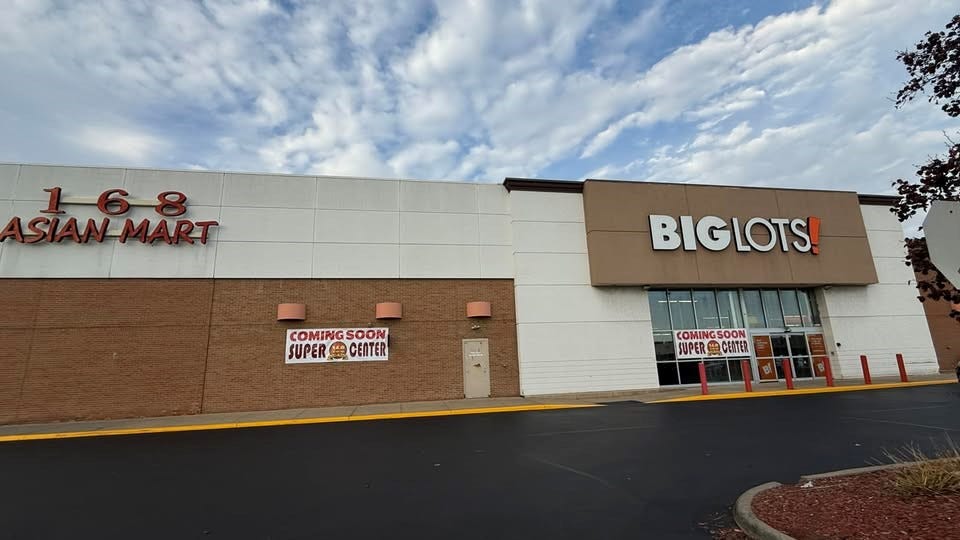A Common Reuse of Former Rite Aid Drugstore Buildings? As Ethnic Grocery Stores
The compact size and "neighborhood" sites of former Rite Aid drugstores -- as well as the location and availability of the real estate -- has led to the repurpose of many as ethnic grocery stores
Rite Aid closed more than 800 drugstores following its 2023 bankruptcy.
But new tenants and users have already started to backfill some of the recently vacated Rite Aid properties.
Including one retail category in particular that has been occupying an outsize number of shuttered Rite Aid drugstores:
Ethnic grocers.
The compact size and “neighborhood” sites of former Rite Aid drugstore buildings — as well as the location and availability of the real estate — have led to the repurpose of many former Rite Aid stores as ethnic grocers.
In the 1960s the average size of a U.S. grocery store was 10,000 - 15,000 square feet.
Or basically the same size as a Rite Aid drugstore.
However today the average size of a U.S. grocery store is nearly 50,000 square feet.
Some conventional grocers — like The Kroger Co., HyVee, Giant Eagle and HEB — are opening even larger stores that are over 100,000 square feet.
Not all grocers, though, are gravitating to larger properties.
In fact some of the fastest growing food retail segments — like ethnic grocers — are opening smaller stores.
There are currently ~15,000 ethnic grocers in the U.S.
They generate just under $50 BB in annual sales, a small fraction of the ~$900 BB U.S. grocery market.
But Prophecy Marketing Insights estimates that the ethnic food market in the U.S. will more than double over the next 7 years to over $100 BB.
And while conventional grocers are adding ethnic foods to stores in certain markets, their product offerings typically pale in comparison to singularly focused food retailers.
Ethnic grocers often carry products that are not be found at conventional supermarkets, including many that are imported through direct sourcing relationships.
They also feature multi-lingual signage and staff, serve local neighborhoods and are often a “third place” for many immigrant and first generation communities.
These characteristics are some of reasons that former drugstores — typically small format stores that are located in convenient “neighborhood” sites — appeal to many ethnic grocers.
Nowhere have the Rite Aid-to-ethnic grocer conversions been more common than in Metro Detroit.
Part of the reason for that is vast number of available former Rite Aid buildings as ~230 of the 800 Rite Aid store closures were in the state of Michigan.
The Metro Detroit area has long been home to significant ethnic and immigrant community populations.
And a place where ethnic grocery stores have thrived for years.
Some ethnic grocery stores in Michigan are even approaching the size of conventional supermarkets — like 168 Asian Mart, the largest Asian grocer in Metro Detroit.
It that is in the process of more than doubling in size into an Asian foods supercenter by taking over an adjacent Big Lots store that closed last year.
But the majority of recent new ethnic grocer openings in Metro Detroit have been in much smaller spaces that require less of an investment.
Such as the following repurposed Rite Aid drugstores.
Atco Market and Bakery — Livonia, Michigan
A former Rite Aid in Livonia, Michigan was repurposed as The Atco Market and Bakery.
Atco Market is operated by Macedonian immigrants and primarily sells products from countries in Europe’s Balkan Peninsula such as Greece, Albania and Serbia.
It even has an in-house bakery that makes homemade cannolis, cakes, baklava and burek, a Balkan pastry that is typically filled with meat and cheese.
Palm Market — Canton, Michigan
Another former Michigan Rite Aid in the Detroit suburb of Canton opened earlier this year as Palm Market, a grocery store offering South Asian and Middle East foods.
Palm Market offers fresh produce, halal meat, homemade Iraqi and Pakistani breads and even has an in-store cafe.
Kareem Market — Sterling Heights, Michigan
A former Rite Aid in Sterling Heights, Michigan — the second most populous suburb of Detroit — is in the process of being converted into the Kareem Market, a Bangladeshi specialty grocer that will offer a collection of Bangladeshi, Indian, Pakistani and Middle Eastern products.
Papaya Market — Dearborn, Michigan
Another former Rite Aid in Dearborn, Michigan is expected to open soon as Papaya Market, an ethnic grocery store that sources products from the Middle Eastern countries of Lebanon, Turkey, Jordan, Yemen and Iraq.
Papaya Market will be one of many ethnic grocery stores in Dearborn, the first Arab-majority city in the U.S. with more than 55% of its ~110,000 residents claiming Middle Eastern or North African ancestry.
Other former Rite Aids in Metro Detroit have also recently been leased or sold to proprietors seeking to open Indian, Asian and Hispanic grocery stores in the former drugstore spaces.
The Rite Aid-to-ethnic grocers conversions are not limited to Michigan, though.
Vicente’s Supermarket, a grocer that specializes in Brazilian food products, is planning to open a location in a vacated Rite Aid in Fall River, Massachusetts.
And a former Rite Aid in Castro Valley, California is currently being repurposed as the Mei Mei Chinese Market and HL Peninsula Dim Sum restaurant.
Additional repurposes of former Rite Aid drugstores as ethnic grocers are likely.
After all, hundreds of shuttered Rite Aid drugstores still remain available for lease or purchase.
Moreover, Rite Aid’s struggles have continued even after it exited bankruptcy last Fall.
Rite Aid is now in jeopardy of a second bankruptcy filing — and its remaining ~1,200 stores are at risk of closure.
Repurposes of these stores, however, would be in other parts of the country as more than 1/2 of Rite Aid’s remaining stores are located in just two states:
Pennsylvania and California.












